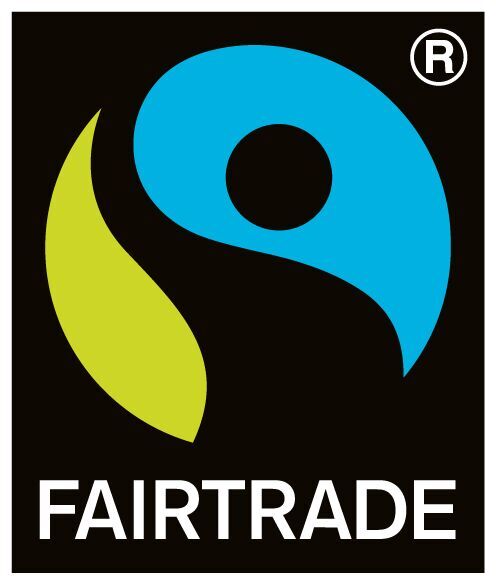May is World Fair Trade Month - A Time to Support Sustainable and Ethical Consumer Habits
Written by: Nomsa Mdhluli Save to Instapaper
As we indulge in our favourite brand of coffee, tea or glass of wine, World Fair Trade Month gives us an opportunity as responsible consumers to pause and reflect upon these products and the journey they have taken to our kitchen tables. It also gives us an opportunity to take action by supporting those brands that hold environmental and social good above profits.
As consumers, we hold immense power and responsibility in shaping the world we live in. Our choices of what we buy can either support sustainable and ethical practices or contribute to a system that exploits both people and the environment.
By buying products - from coffee and tea to wine and clothing that bear the Fairtrade Mark - an increasing number of consumers are paying heed to sustainability and ethical practices when making purchasing decisions. World Fair Trade Month allows us to showcase these products and bring greater awareness to a growing consumer trend that encourages businesses to adopt sustainable practices.
According to a recent consumer report by McKinsey, 66% of global consumers consider sustainability when making purchasing decisions, and 55% are willing to pay more for sustainable products. This trend is particularly evident among younger generations, with 75% of millennials and 72% of Gen Z consumers willing to pay more for sustainable products. Additionally, the report found that consumers are increasingly seeking transparency and authenticity from brands, with 63% of global consumers wanting companies to take a stand on social and environmental issues.
Fairtrade is one way for consumers to align their social values with their consumption habits. Fairtrade ensures that producers in developing countries receive fair wages, safe working conditions, and sustainable livelihoods. By purchasing Fairtrade products, consumers can support small-scale farmers and artisans who might otherwise struggle to compete with larger corporations that prioritise profits over people. In addition, Fairtrade certifications require producers to follow environmental and social standards, promoting sustainability and reducing harm to the planet and communities.
In the South African wine industry, for example, Fairtrade practices have played a significant role in promoting social and environmental responsibility. One notable example is the Fairtrade certification of wine farms, which ensures that workers are treated fairly and that the production processes prioritize environmental sustainability.
Many South African wine farms have embraced Fairtrade principles by ensuring fair wages, safe working conditions, and community development initiatives for their workers. Fairtrade certification requires adherence to strict labour standards, including the prohibition of child labour and discrimination, while promoting gender-equality and workers’ rights. This certification not only improves the livelihoods of farm workers but also empowers them to have a voice in decision-making processes.
Many vineyards have also adopted sustainable farming methods, such as organic or biodynamic practices that minimize the use of synthetic fertilizers, pesticides, and herbicides, promoting healthier ecosystems and reducing the impact on the environment. These measures, along with responsible water management practices have been implemented to conserve water resources, a critical concern in a region prone to drought.
Businesses can demonstrate their commitment to fair trade and sustainability by joining the Fairtrade Movement. Fairtrade International offers a certification program that ensures fair wages and safe working conditions for producers, as well as environmental standards for production and packaging. Companies that join the network can access a global network of producers and receive support in implementing fair trade and sustainable practices throughout their supply chain. By joining the Fairtrade International network, businesses can not only make a positive impact but also differentiate themselves in the market and attract socially conscious consumers, thereby also unlocking international markets where these values are prized.
“As we celebrate World Fair Trade Month this May, it provides an excellent opportunity for consumers and businesses to learn more about fair trade and make a commitment to supporting sustainable and ethical consumer habits. By choosing Fairtrade products and supporting businesses that prioritize social and environmental responsibility, we can create a better future for both people and the planet,” says Sandra Ndlovu, Regional Communications Officer for Fairtrade International’s Southern Africa Network.
Look out for the Fairtrade Mark:
on the products you choose to support and to learn more about the Fairtrade Africa network, visit: www.fairtradeafrica.net
Get new press articles by email
Latest from
- Wrinkles, Thinning, and Dryness? How Menopause Transforms Your Skin
- Understanding the Impact of Diabetes on Skin Health
- Dr Judey’s Guide to a Bump-Free Movember Addressing Ingrown Hairs and Razor Bumps in Men's Grooming
- Future-Ready Artisans - Makers Fest 2024 Highlights Green Economy Opportunities and Challenges
- Makers Fest 2024 Kicks Off with National Entrepreneurship Inter-College Finals
- Kicking Off Change - Girls’ Soccer Fun Day and Cup Tournament to Tackle GBVF
- Changing Perceptions around Artisan Careers
- Shesha e-Hailing App Wins Stuff Magazine South Africa's App Awards 2024 in the Travel Section
- South Africa to Tighten Cryptocurrency Regulations with New ‘Travel Rule’
- Upholding the Dignity of Domestic Workers in South Africa - A Call to Action on International Workers Day
- Mayibuye iAfrika Concert Returns with Legendary Musical Line-Up
- Allan Gray Makers Offers Free Entrepreneurship Training for Aspiring Plumbers and Electricians to Launch Their Own Businesses
- Sumsub Launches Non-Doc Verification in Africa to Help Businesses Onboard 350M+ Users
- African Cuisine Feast on the Menu at Joburg’s Ultimate Lifestyle & Music Expo
- Unlocking Market Access for Creative Industries at the Music & Lifestyle Expo
The Pulse Latest Articles
- Education Is The Frontline Of Inequality, Business Must Show Up (December 11, 2025)
- When The Purple Profile Pictures Fade, The Real Work Begins (December 11, 2025)
- Dear Santa, Please Skip The Socks This Year (December 10, 2025)
- Brandtech+ Has 100 Global Creative Roles For South African Talent (December 9, 2025)
- The Woman Behind Bertie: Michelle’s Journey To Cape Town’s Beloved Mobile Café (December 9, 2025)
